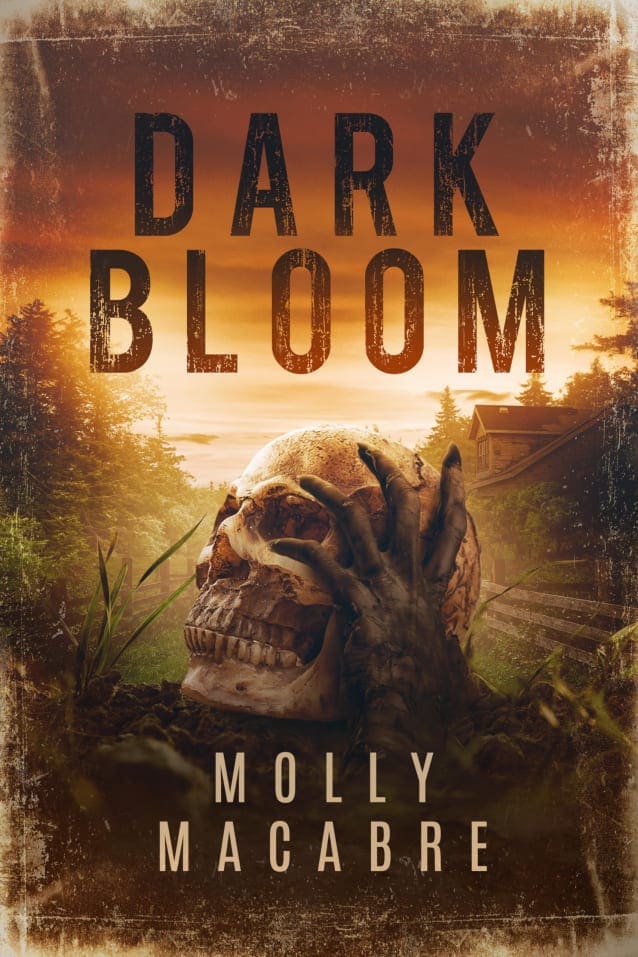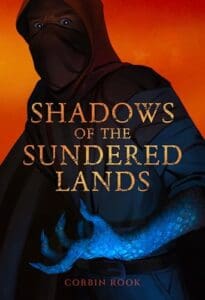
Pen name accuracy 10/10
Synopsis
When a disease runs rampant, turning people into cannibalistic horrors, society comes to a halt. Kate manages to escape the sadistic captivity she has endured and collides with Nick, a Marine haunted by the scars of war.
They join forces to navigate a treacherous landscape, battling the undead and hostile survivors. But what happens when the monsters outside are the least of their worries?
Nick’s shame is crushing, and Kate’s distrust is swallowing her whole. Will they overcome the darkness that threatens to consume them from within? And what will become of a world overrun with creatures that cannot seem to stop…laughing?
Review
Dark Bloom, a character-driven zombie apocalypse horror with a focus on the two protagonists’ journey of trauma and healing, has two intriguing ideas going for it. The first is laughing zombies—oh, I see I have your attention—and the second is the idea that life before a zombie outbreak might not be that great for everyone and the life that comes after, while terrifying in other ways, might, just might offer some kind of redemption and recovery. I don’t know what you call this trope—”the apocalypse was good for me?”— but I always like it, and here it’s done brilliantly, and in this creepy giggling-zombie-infected landscape a pair of brilliant character studies showcase a strong debut from a really exciting new horror talent.
The two characters in question are Kate, who pre-outbreak has suffered almost unimaginable trauma at the hands of her sadistic abusive boyfriend, and Nick, a marine haunted by the sights of war and his guilt of actions during it. Kate has an understandable total loss of trust in men, and severe self-esteem issues; Nick, though initially seeming like your typical strong, silent ready for the apocalypse warrior, is soon evidently in need of a self-perceived redemption. Macabre examines these traumas skilfully, convincingly and intensely, and the nervous chapters where they meet and Kate must warily work out whether and how to trust Nick, while Nick himself slowly navigates how to behave around someone with clear trust issues, are compelling and well written. And the flashbacks to pre-outbreak, particularly for Kate, are deeply disturbing; Macabre does not flinch from the horrors just as she lingers on the healing from them.
But if you’re thinking this a pure character study with a zombie outbreak as coincidental backdrop, be assured that though Kate and Nick’s journey of healing is very much front and centre, it takes place amid a fast-paced, action-packed journey of seeking safety through the wilds of zombie America, in the mold of The Walking Dead’s “oh look, here’s a new bunch of humans, wonder when that will go wrong” template but instead of stretched out till it tests your patience (take that, successful TV show) it’s given a vibrant, edge-of-your-seat feel to it as you wonder who will get these new groups first, the zombies or each other. Achieving this balance of deep character trauma study with tense, whiplash-paced action is no mean feat, especially for a first book, and speaks of huge promise for this author.
As for the zombies themselves, who I teasingly referenced earlier, they are extremely creepy—weird stilted limbs, a sense of cunning and the genuinely unnerving habit of laughing as they chase you, and Macabre proves deft at writing impactful violence and gore. There’s some intriguing hints as to deeper strategy behind the infected, and like a lot of zombie tales I wish we’d got a bit more of this than hints, but I can’t fault Macabre for keeping the spotlight on Nick and Kate when their journeys are so well crafted.
Overall, this is a startlingly effective debut that perfectly balances fast-paced zombie apocalypse action with a compelling tale of trauma and healing. The horrors are blooming, but so, on this evidence, will Macabre’s writing career.







Leave a Reply